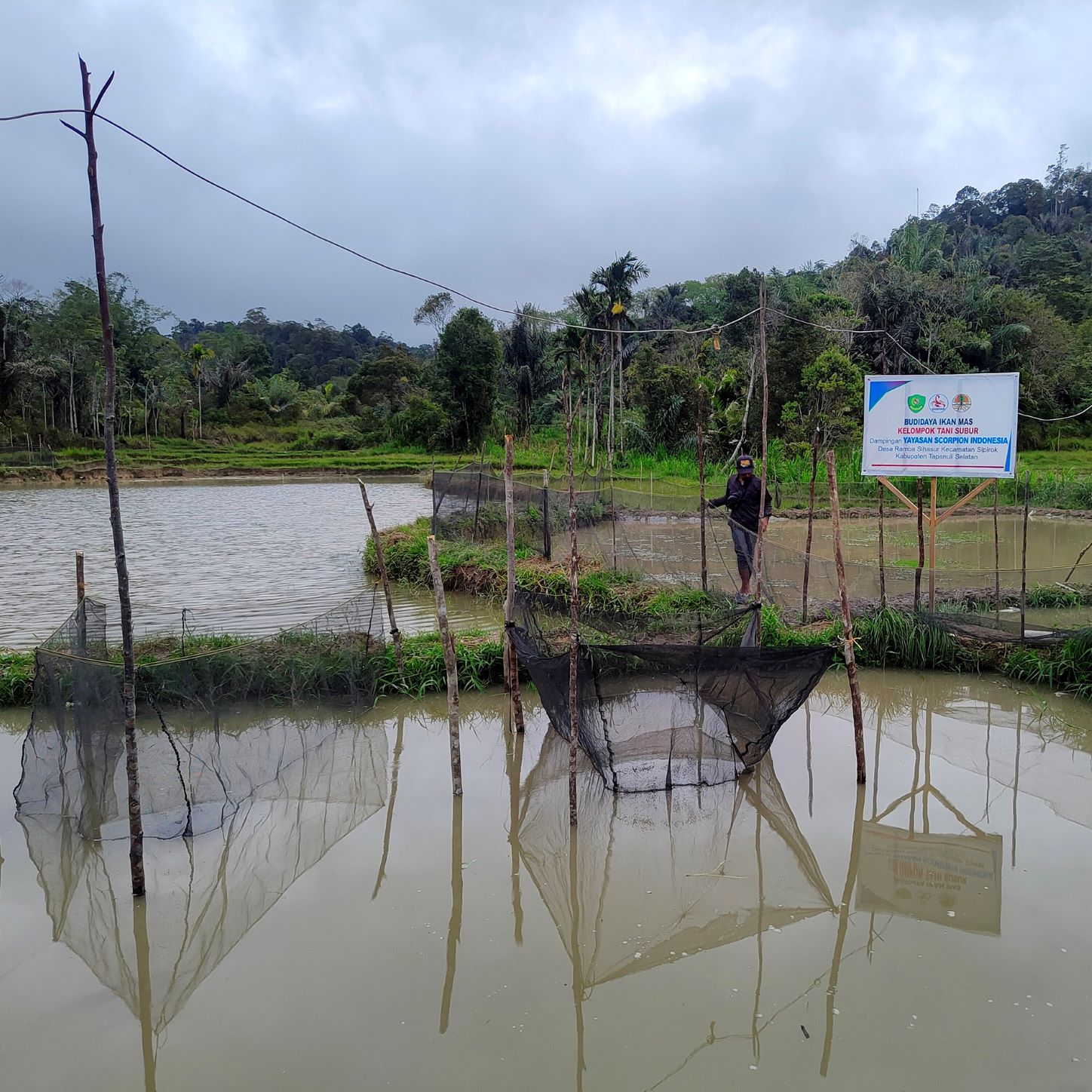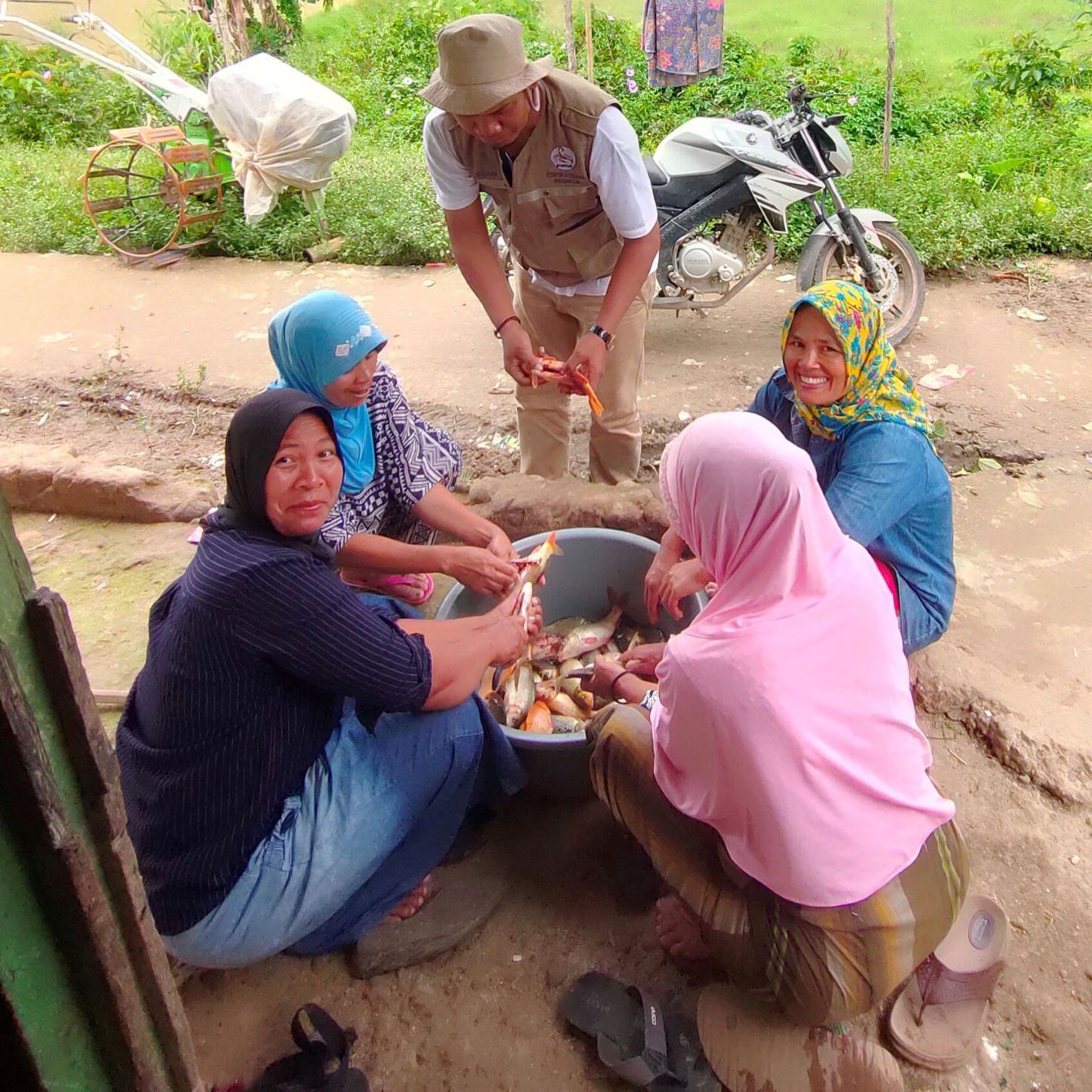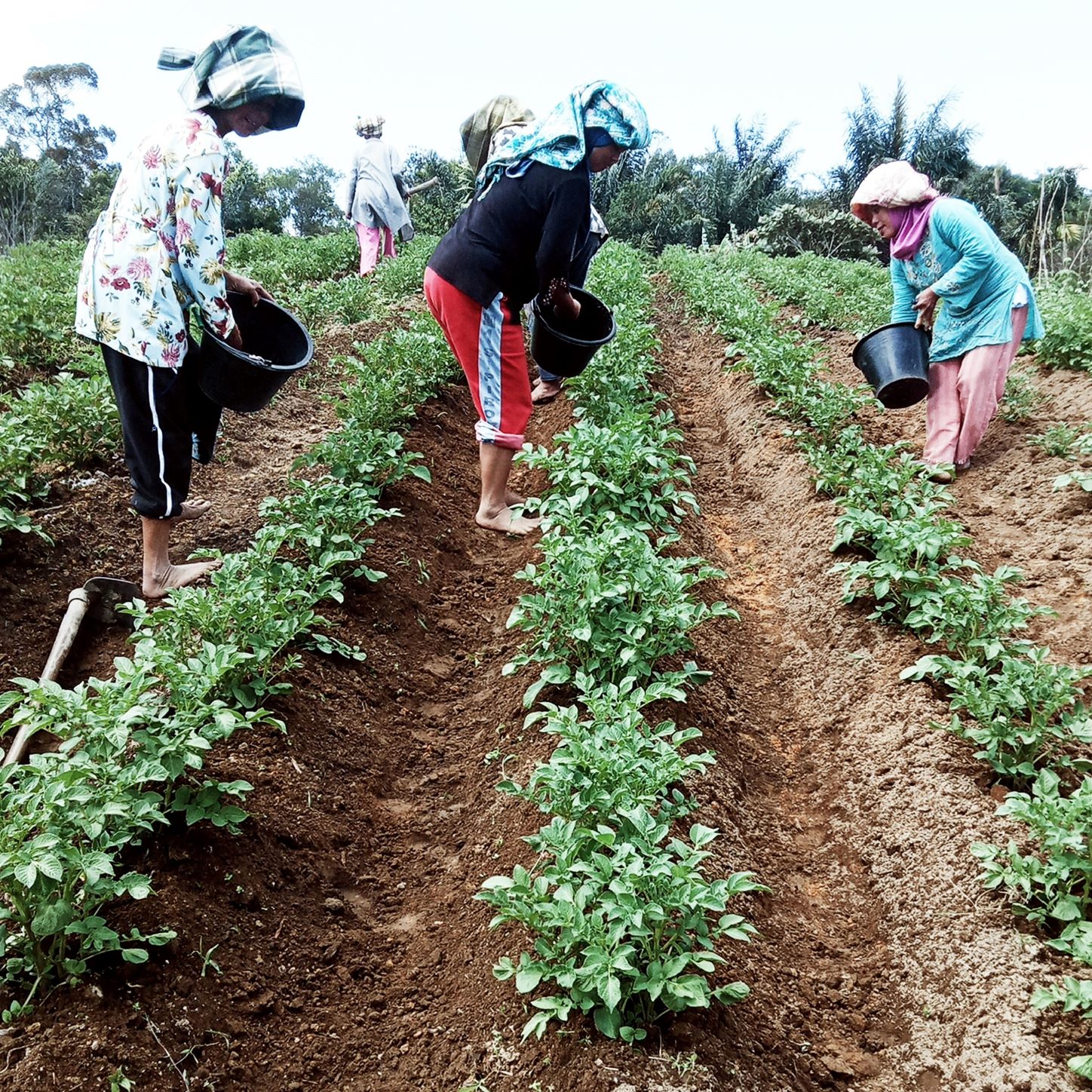There are only 800 Tapanuli orangutans left in the wild - if not less. Every single Tapanuli orangutan we save could mean the survival of this highly vulnerable species.
Tapanuli orangutans were only identified as a separate species in 2017 - so although they’ve been around for millennia, it took us humans a long time to work out that they’re different from their Sumatran and Bornean cousins. Tragically, as soon as they were identified, they immediately became the most Critically Endangered Great Ape.
Tapanuli orangutans are named after the South Tapanuli region, where they live in the Batang Toru Ecosystem in North Sumatra. Their habitat is under constant, unrelenting threat from a range of industries, especially gold mines. Saving this unique species is a race against time, and we’re proud to support Scorpion Foundation, a small team of Tapanuli orangutan defenders who are dedicated to protecting the species from extinction.
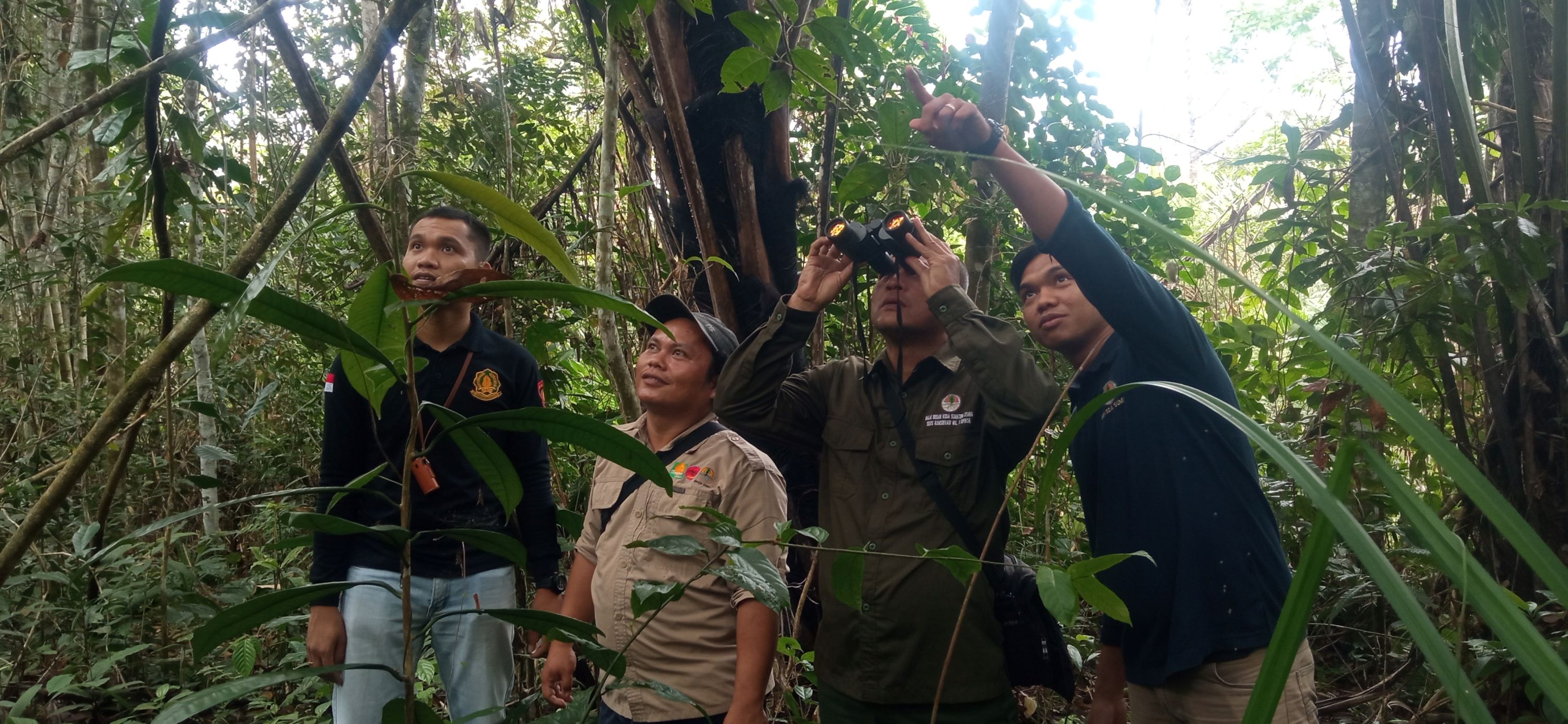
Above: Scorpion Foundation with rangers from the BKSDA, who undertake joint patrols of the forest to protect Tapanuli orangutans
In 2017, Scorpion Foundation established a working unit called the Tapanuli Orangutan Protection Unit (TOPU) to focus on Tapanuli orangutan protection. The goal of this project is to strengthen the participation of the local community to protect Tapanuli orangutans in the Batang Toru Ecosystem, Sumatra, Indonesia - including the populations in East Batang Toru (approximately 150 individuals) and West Batang Toru (approximately 600 orangutans).
Scorpion’s key objectives are to:
- Build a network with villagers in the adjacent area of Tapanuli orangutan habitat
- Continue public awareness activities for the rural community and the younger generation/students
- Carry out joint patrols with strengthened participation of the local community.
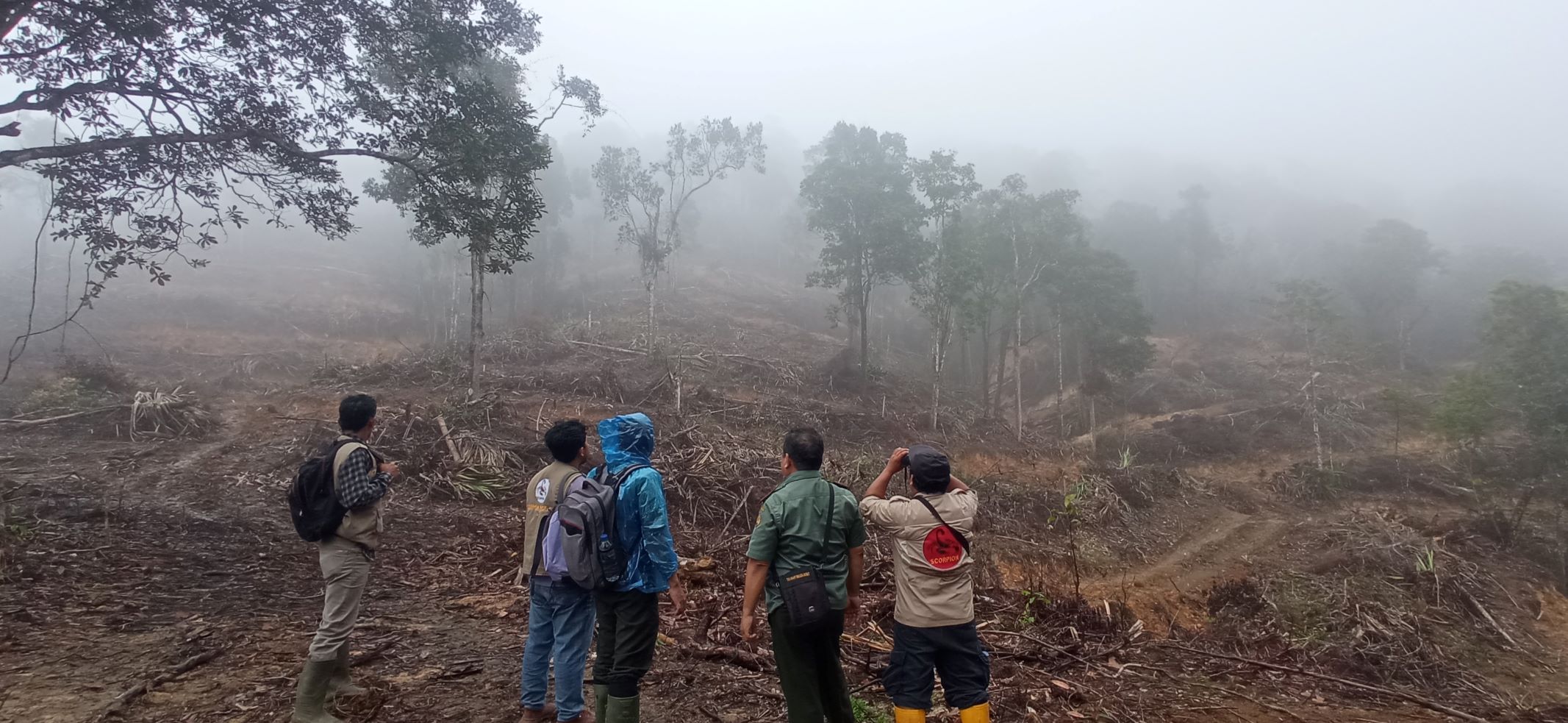
Above: In a recent patrol, the team discovered an area of significant forest clearing
One key action they’ve undertaken is a regular joint patrol near Batang Toru Ecosystem, along with the Indonesian wildlife authority (BBKSDA). In a recent patrol, they encountered a juvenile Tapanuli orangutan playing in trees near the main road in Simaninggir village in Central Tapanuli.
To prevent the illegal capture of this orangutan, the patrol team encouraged the young male to leave the village, using noise makers and fireworks to scare it away. The fire crackers and horns don’t injure the orangutans, but they are very effective in encouraging orangutans to move, and they’re often a better option than sedating and translocating an orangutan. The patrol team left the location in the afternoon after they were sure that the orangutan had returned to the wilderness in Batang Toru Ecosystem. You can see the orangutan in the trees in the video below.
Scorpion’s current focus is to implement a program of activities that will mobilise local communities to protect the two metapopulations of Tapanuli orangutans in the Batang Toru landscape. These activities are broad, holistic and far-reaching, and include engaging with a group of young people who are committed to helping protect the Tapanuli orangutan. They’ve also partnered with villages to construct a monitoring post in East Batang Toru.
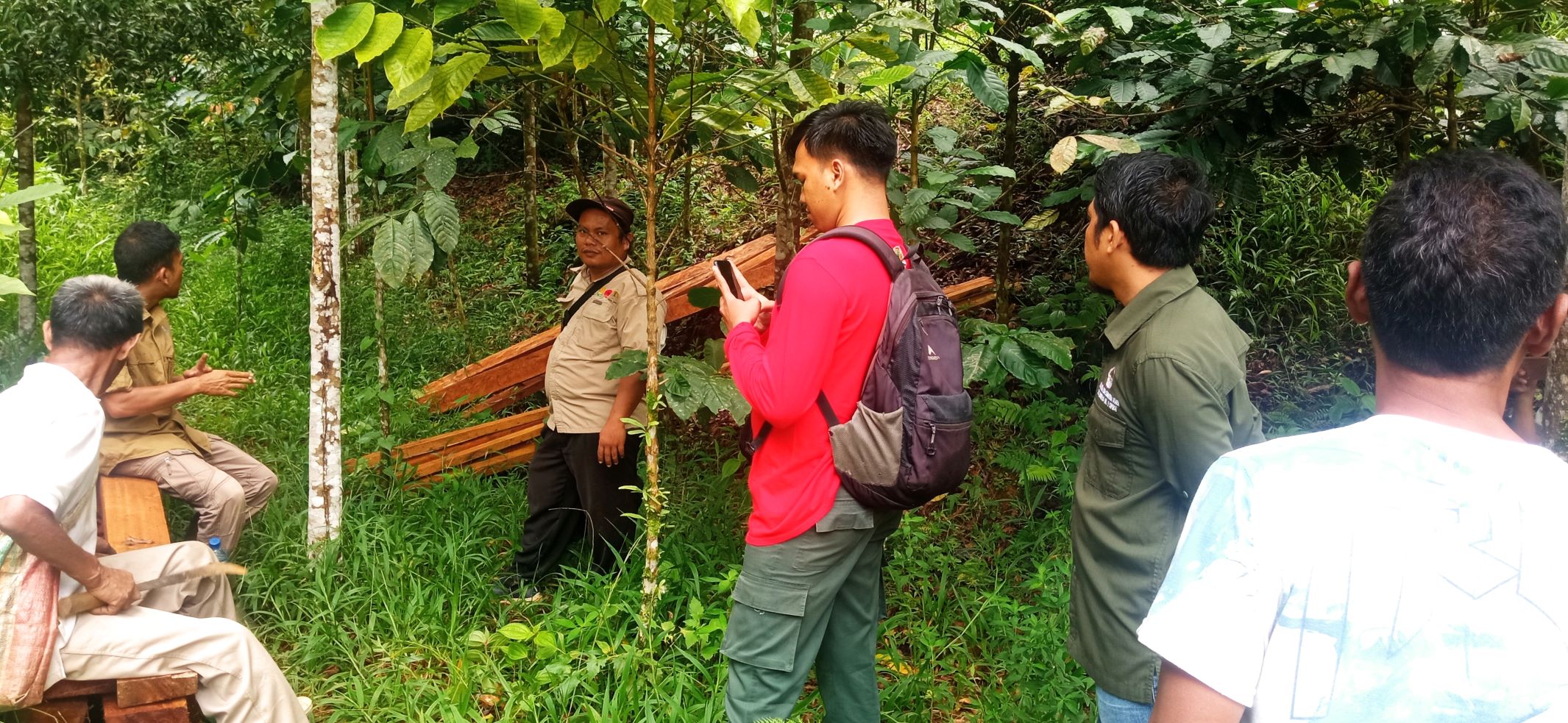
Scorpion sees the role of the local community as very important in the protection of the Tapanuli orangutan. A socio-economic survey by Scorpion Indonesia indicated that the monthly income of households is very low, between Indonesian Rupiah $USD750,000 to $USD1,500,000. Scorpion initiated a new approach in Ramba Sihasur village, where they are developing the economic potential of people who live near orangutan habitats. They supported villagers to develop freshwater fish farming and intensive potato farming to improve their health and supplement their income.
We cannot save the orangutan alone. While we care for orangutans, we also have to care for people too. This approach is, at this stage, a pilot project in one village, which will be replicated in other villages in the Batang Toru landscape.
Below: intensive potato farming and freshwater fish farming
